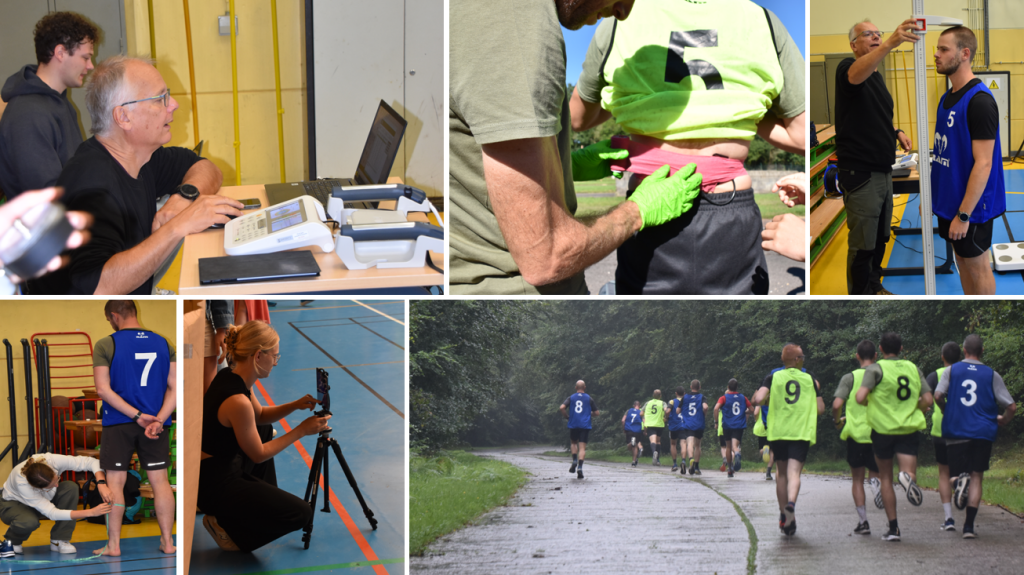Military personnel belong to the group of so-called “high performers”; they must constantly perform physically and mentally and are trained to do so. The physical and mental health and fitness of military staff is paramount to the efficiency of their organization’s core operations. Attrition of recruits, depression or burnout, inadequate fitness and food intake, fatigue, injuries, and illnesses can challenge and damage that efficiency.
STATS therefore focuses on early detection of suboptimal performance and dysfunction at the physical, mental or health level. Detection is based on objectively measured sensor data and specific military performance tests.
Who is behind the STATS project?
STATS is a DEFRA project subsidized by BELSPO/DEFRA and will run from early 2023 to late 2024. The research for the project is carried out by Ghent University (UGent), as academic partner, together with BioRICS and IDRO, as industrial partners. They are conducting this research in close collaboration with some defense experts who are also participating in the project as partners.
What problem does STATS solve?
The 2-year project aims to use sensor data and specific military test batteries for early detection of suboptimal performance and dysfunction at physical, mental or health levels. With a focus on non-commissioned officer training in Arlon (Belgium), the project seeks to explain high dropout rates and predict individual dropouts within the first eight weeks of training.

What does the ‘Toolbox’ consist of?
Using an internally developed platform, it is possible to continuously track all recruits through wearable technology, providing insight into individual reactions during training. The first phase of the project included an eight-week program of physical and mental testing and continuous monitoring via Garmin Fenix 7 smartwatches.
Garmin Fenix 7: The Garmin Fenix 7, adapted by IDLab (UGent) for safe and efficient use in a military context, provided valuable insights into activity and intensity. Through the measurement of objective (external load) and subjective (internal load) parameters, the accumulation and tracking of load was made possible.
BioRICS Mindstretch algorithm: The BioRICS algorithm uses continuously collected data to calculate how much mental energy the non-commissioned officer candidates consume. This continuous data is plotted against the defense activity schedule.
IDRO sweat lactate sensor: IDRO’s expertise in real-time lactate measurements from sweat provides a non-invasive solution for blood measurements. This provides a holistic understanding of the recruits’ physiological responses.
Body composition analysis: The project also included several physical assessments, including arm muscle strength, urine density and body composition. Changes in these parameters over specific time periods provided valuable insights into hydration levels, muscle mass and overall physical fitness.

What are the next steps for STATS?
These first “lessons learned” are certainly promising for the next test phase in 2024. In this second test phase, which will take place in Arlon as well, we want to further investigate whether the STATS platform could limit expert interactions or interventions to those that really matter at that moment. In this way, we want to move from personalized 1-to-1 advice to a partially automated “blended coaching” approach. This creates more time to focus on those individuals who are truly in need of support.
Conclusion
The DEFRA STATS project marks progress in improving military training through the integration of wearable technology, data analysis and expert insights. Initial findings underscore the potential of continuous monitoring to improve individual support, contributing to the overall success and well-being of military personnel during training.
We’re already curious for the results of test phase 2 and we will make sure to keep you updated!
Take a look at the STATS project page for more background on the project.


